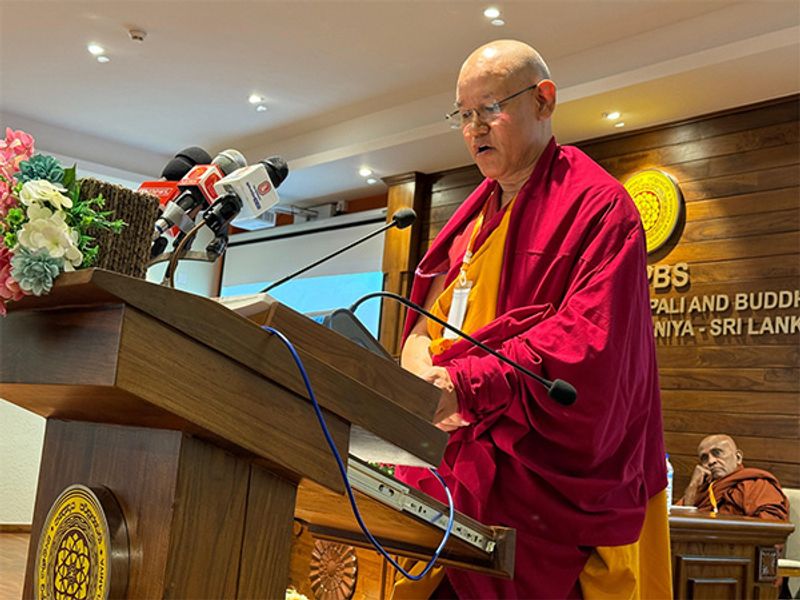Kelaniya [Sri Lanka], July 28 (ANI): In a defining moment for modern Buddhist thought, the C was formally adopted on Saturday at the conclusion of the Scholastic Conference on Samsara in Buddhist Philosophy, hosted by the Postgraduate Institute of Buddhist and Pali Studies at the University of Kelaniya.Held at the sacred site of Kelaniya, revered as a place visited by the Buddha and known for its centuries-old tradition of Buddhist scholarship, the conference brought together monastics, academics, and spiritual leaders from across the globe. The event culminated in a powerful statement that both reaffirmed ancient teachings and boldly addressed contemporary challenges facing the Buddhist world.The Kelaniya Declaration reaffirmed rebirth (punabbhava) as a central and non-negotiable tenet of Buddhist philosophy, rooted in the teachings of the Buddha and enriched by various Buddhist traditions. It offered a clear distinction between rebirth and reincarnation, emphasising the non-self (anatta) nature of the process, where continuity of consciousness occurs without the transmigration of a permanent self.Yet what set the Declaration apart was its emphatic defense of spiritual self-determination, particularly regarding the recognition of rebirths among spiritually advanced beings. In a strong rebuke to political and institutional interference, it declared “The right to reincarnate lies solely with the individual consciousness that chooses to do so. No external authority, be it religious, political, or institutional holds the legitimate power to determine, approve, or deny the reincarnation of any being.”This unprecedented assertion was widely seen as a response to ongoing controversies, particularly surrounding state involvement in identifying reincarnated masters, especially in Tibetan Buddhist contexts where political forces have sought to assert control over the recognition of tulkus.The Declaration also highlighted the role of Bodhisattvas–beings who return to the cycle of rebirth not due to karmic compulsion but out of compassion. It clarified that their return arises from wisdom and voluntary altruism, not from delusion or desire, reaffirming their place as exemplars of the Buddhist ideal.Additionally, the Declaration offered a nuanced reading of Sunyata (emptiness), asserting that while the realisation of emptiness challenges static notions of identity, it does not negate karmic causation or the compassionate activity of enlightened beings within Samsara.Conference participants also acknowledged the complexity of translating terms like “rebirth,” “reincarnation,” and “rebecoming,” calling for context-sensitive interpretations that avoid both ideological rigidity and conceptual confusion.The Kelaniya Declaration was signed on behalf of all conference participants by the Foundation for Buddhist Brotherhood, in collaboration with the International Buddhist Confederation and the Buddhist and Pali University of Sri Lanka.Its adoption marked a critical milestone in the global Buddhist community’s engagement with modernity–balancing faithful transmission of tradition with courageous philosophical evolution. It also reaffirmed that the path to liberation must remain free of coercion, political manipulation, or institutional ownership.(ANI)(This content is sourced from a syndicated feed and is published as received. The Tribune assumes no responsibility or liability for its accuracy, completeness, or content.)


